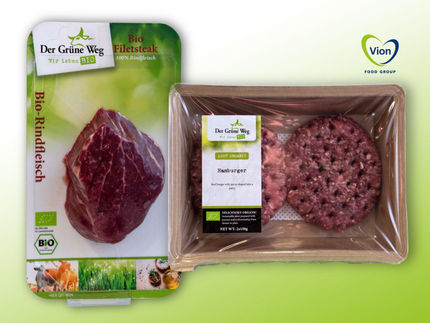Three brand transparency strategies for food and drink
The dual impact of the pandemic and inflation in the last 12-24 months has made Indian consumers be vulnerable and resilient at the same time. Experiencing these uncertain times has made consumers reevaluate their decision-making. They want brands to give them greater decision-making control by being more authentic and transparent, and this is particularly evident with their food and drink purchase behaviours.

Photo by The Organic Crave Company on Unsplash
Mintel research shows that nearly half of Indian consumers (49%) claim to check product labels when shopping, while 35% are interested in food and drink innovations that can be tracked online from source to shelf. 42% of Indians strongly agree that they would be loyal to brands that are transparent with consumers.
But how can brands communicate with transparency?
Be honest with ‘shrinkflation’
Consumers’ indication that they would remain loyal to brands that are transparent on price increases is an invitation to be specific on why prices are rising. It is important to offer exact detail on rising raw material, labour and logistic costs to help consumers understand business pressures and build brand trust. Value-conscious consumers will pay attention to how brands respond to the challenges of rising input, production and logistics costs.
For example, heritage cake brand from the East, Bapuji, explains its price increase (from INR5 to INR 7) in a newspaper advertisement: “Constant rising input costs without compromising the quality have forced us to increase the price of Bapuji Cake to Rs. 7/-. Though we had to unwillingly go in for a price hike, we pray that our customers and sellers will understand and abide by us.” This means using simple language and linking price increases to a customer-centric value narrative.
Be open about what’s in the pack and what isn’t
Brands need to give consumers more positive reasons to buy beyond price. This is an opportune time to capitalise on the increased interest in health and wellness by proving efficacy through ingredient transparency.
This can include adopting a “clean label” or all-natural ingredients to allay consumer concerns about artificial flavours, colours and preservatives. It is important to give consumers more information about ingredient origin and production methods to change perceptions of mass-produced products.
For example, Open Secret champions transparency and clean label with its Un-junked line of positioning that combines the use of healthful ingredients/processes and the removal of nasties from snack foods.
Breaking down the process of getting food from its source to the plate is a powerful tool that can be employed by manufacturers, both on and off the pack, to educate consumers and build trust.
Appeal to eco-conscious consumers with sustainable packaging
Mintel Trend Moral Brands indicates that with the growth in consumer-brand relationships, consumers now expect brands to take ethical and sustainability initiatives. They may lack the time or resources to be vocal about environmental issues and thus expect brands to do so on their behalf. Packaging can provide a route to transparent information, yet 43% of Indians strongly feel that the packaging waste issue urgently needs to be fixed.
Given the choice of similar food products, 56% of the Indian eco-conscious consumers (vs 44% of the total) say they would opt for the one that is labelled as environmentally friendly. This provides an opportunity for brands to call out their lightweight-ing and plastic reduction efforts in front of the pack and make it a value-selling point to appeal to the rising breed of eco-conscious consumers.
As single-use becomes a toxic word for many consumers, refillable packaging offers a new multi-use heuristic as identified in Mintel’s Packaging TrendIn-store Refill. This is an extension of the trend for zero-waste stores sprouting across the country. Brands can tap into this trend with shelf-ready solutions that offer simple, branded dispensing in-store. India’s Tata Sampann piloted the Sarvagun Sampann Pulses Dispenser to bring quality, loose unpolished pulses with zero-plastic packaging in convenient dispensers.
What Mintel thinks
As the cost of living soars, trust will remain a key decision driver. Honesty and transparency matter to consumers who want to make informed decisions for their purchases. Advancements in technology will enable food and drink brands to offer full disclosure in sourcing and manufacturing processes as well as product efficacy (ie health claims). This elevates consumer-brand relationships and provides assurance to consumers that they are getting the most value for their money.






























































